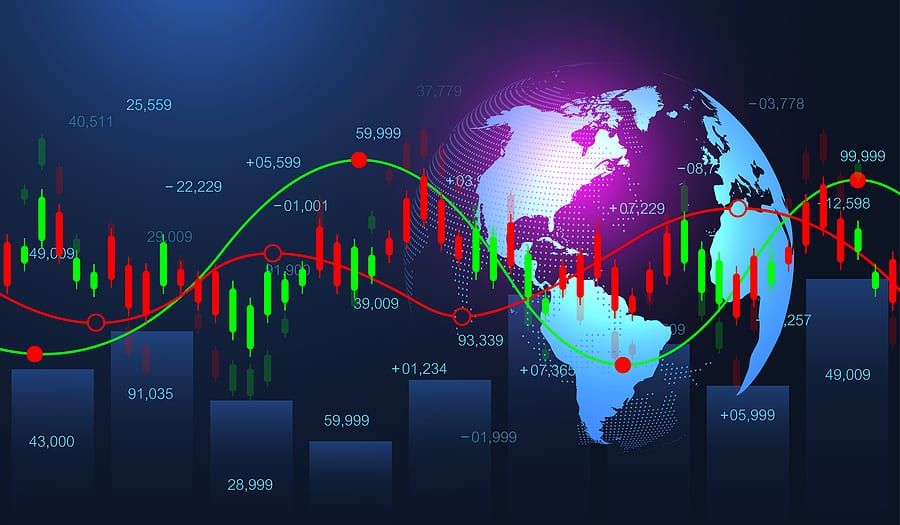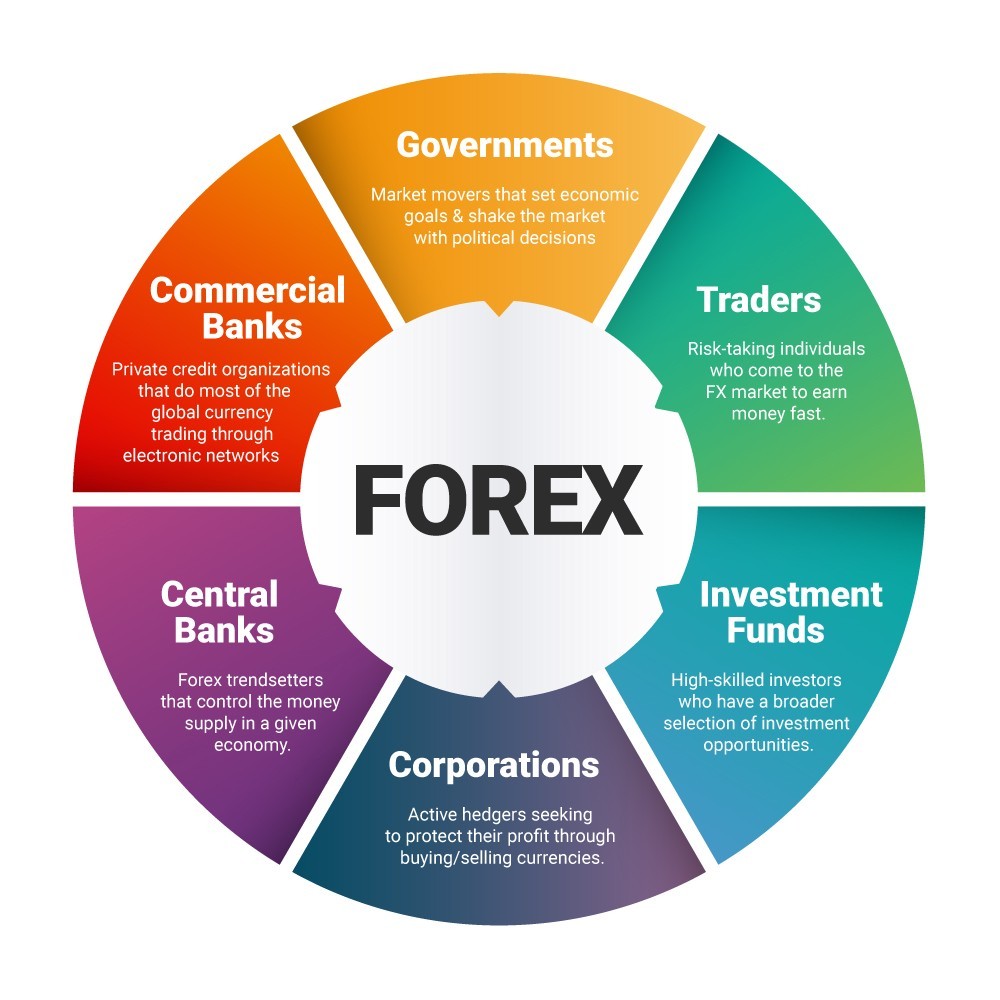Investment Manager
- Available 24/7
- ***
- Invest with us
Forex Trading
What Is Foreign Exchange (Forex)?
Foreign Exchange (forex or FX) is the trading of one currency for another. For example, one can swap the U.S. dollar for the euro. Foreign exchange transactions can take place on the foreign exchange market, also known as the forex market.
The forex market is the largest, most liquid market in the world, with trillions of dollars changing hands every day.1 There is no centralized location. Rather, the forex market is an electronic network of banks, brokers, institutions, and individual traders (mostly trading through brokers or banks).
Understanding Foreign Exchange
The market determines the value, also known as an exchange rate, of the majority of currencies. Foreign exchange can be as simple as changing one currency for another at a local bank. It can also involve trading currency on the foreign exchange market. For example, a trader is betting a central bank will ease or tighten monetary policy and that one currency will strengthen versus the other.

When trading currencies, they are listed in pairs, such as USD/CAD, EUR/USD, or USD/JPY. These represent the U.S. dollar (USD) versus the Canadian dollar (CAD), the euro (EUR) versus the USD, and the USD versus the Japanese yen (JPY).
There will also be a price associated with each pair, such as 1.2569. If this price was associated with the USD/CAD pair, it means that it costs 1.2569 CAD to buy one USD. If the price increases to 1.3336, then it now costs 1.3336 CAD to buy one USD. The USD has increased in value (CAD decrease) because it now costs more CAD to buy one USD.
In the forex market currencies trade in lots, called micro, mini, and standard lots. A micro lot is 1,000 worth of a given currency, a mini lot is 10,000, and a standard lot is 100,000. This is different than when you go to a bank and want $450 exchanged for your trip. When trading in the electronic forex market, trades take place in set blocks of currency, but you can trade as many blocks as you like. For example, you can trade seven micro lots (7,000) or three mini lots (30,000) or 75 standard lots (7,500,000), for example.
The foreign exchange market is unique for several reasons, mainly because of its size. Trading volume in the forex market is generally very large. As an example, trading in foreign exchange markets averaged $6.6 trillion per day in April 2019, according to the Bank for International Settlements, which is owned by 62 central banks and is used to work in monetary and financial responsibility. The largest trading centers are London, New York, Singapore, Hong Kong, and Tokyo.
Trading in the Foreign Exchange Market
The market is open 24 hours a day, five days a week across major financial centers across the globe. This means that you can buy or sell currencies at any time during the day.
 The foreign exchange market isn't exactly a one-stop shop. There are a whole variety of different avenues that an investor can go through in order to execute forex trades. You can go through different dealers or through different financial centers which use a host of electronic networks.
The foreign exchange market isn't exactly a one-stop shop. There are a whole variety of different avenues that an investor can go through in order to execute forex trades. You can go through different dealers or through different financial centers which use a host of electronic networks.
From a historical standpoint, foreign exchange was once a concept for governments, large companies, and hedge funds. But in today's world, trading currencies is as easy as a click of a mouse—accessibility is not an issue, which means anyone can do it. In fact, many investment companies offer the chance for individuals to open accounts and to trade currencies however and whenever they choose.
When you're making trades in the forex market, you're basically buying or selling the currency of a particular country. But there's no physical exchange of money from one hand to another. That's contrary to what happens at a foreign exchange kiosk—think of a tourist visiting Times Square in New York City from Japan. He may be converting his (physical) yen to actual U.S. dollar cash (and may be charged a commission fee to do so) so he can spend his money while he's traveling.
But in the world of electronic markets, traders are usually taking a position in a specific currency, with the hope that there will be some upward movement and strength in the currency that they're buying (or weakness if they're selling) so they can make a profit.
Differences in the Forex Markets
There are some fundamental differences between foreign exchange and other markets. First of all, there are fewer rules, which means investors aren't held to as strict standards or regulations as those in the stock, futures, or options markets. That means there are no clearing houses and no central bodies that oversee the forex market.
Second, since trades don't take place on a traditional exchange, you won't find the same fees or commissions that you would on another market. Next, there's no cutoff as to when you can and cannot trade. Because the market is open 24 hours a day, you can trade at any time of day. Finally, because it's such a liquid market, you can get in and out whenever you want and you can buy as much currency as you can afford.

